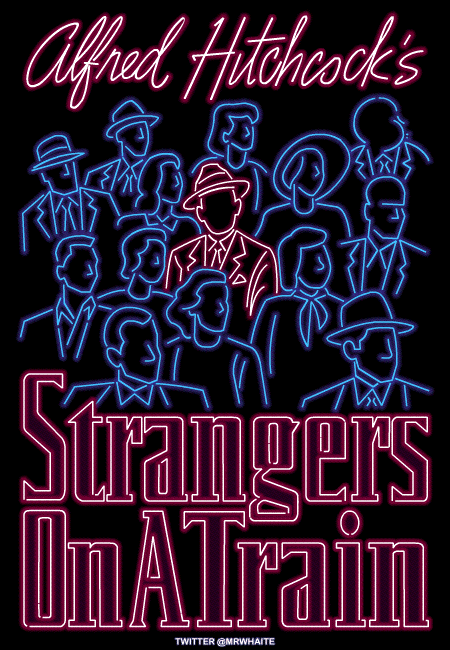
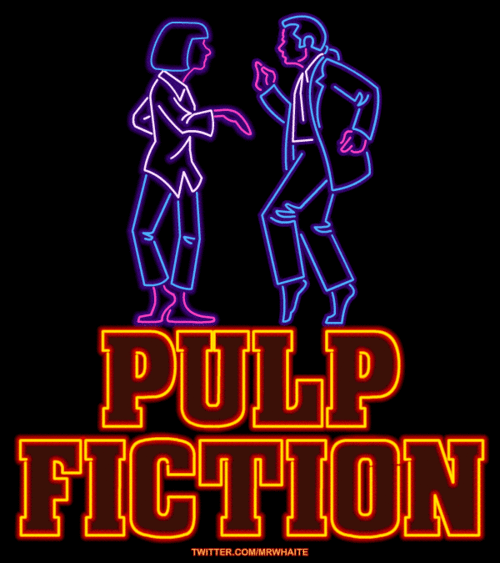
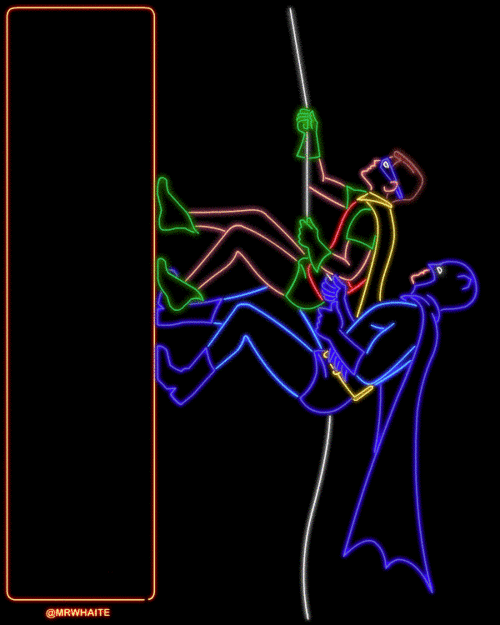
This fellow, Mr. Whaite, might be my favorite fan-made-movie-homage artist of all time.
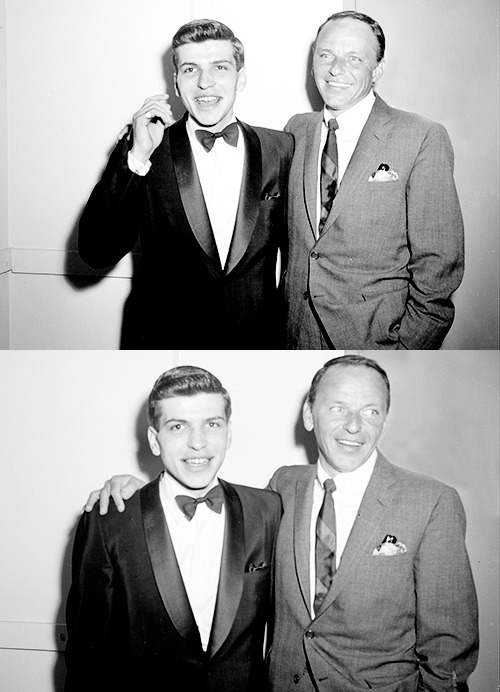
Lads: Franklin Wayne Sinatra (not, technically, a Jr.) and Francis Albert Sinatra, 1963 (via FYeahTheVoice)

Road game: Paul McCartney, 1965
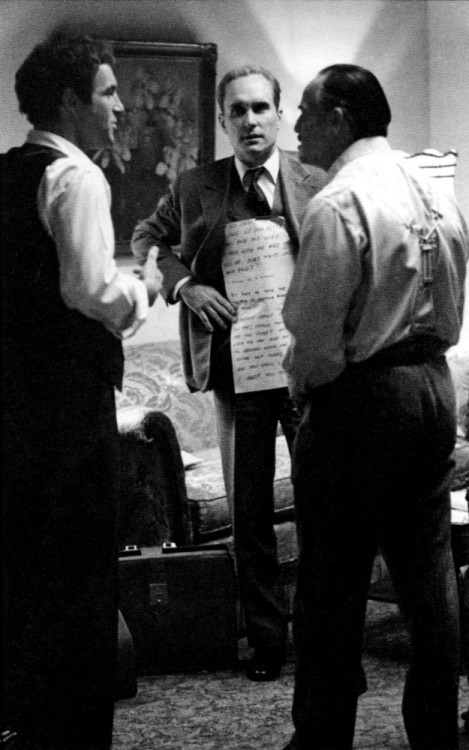
MB cheats: Brando reads cue cards off the chest of Robert Duvall on the set of “The Godfather” (via SalesOnFilm) (Note: he used this trick rather than memorize lines, he said, to create ‘spontaneity’ in his performances)
Considering the career paths of a director reaching maturity and another in the autumn of his professional days.
In some sense, an artist can be said truly to have found a voice when one of his or her works is recognizable from a few characteristic touches.Reviews of this week's new releases in Portland-area theaters.
Not very much new stuff in the hopper this weekend. We have reviews of the '80s metal love story "Rock of Ages," the invention-of-the-vibrator comedy "Hysteria" and a program of New Czech Cinema at the Northwest Film Center. Add to that the usual stuff -- "Also Opening," "Indie/Arthouse" and "Levy's High Five" -- and that's all she wrote.New releases in Portland-area theaters not reviewed in this week's A&E
“The Bus” Documentary about that great icon of the American road, the Volkwagen Bus. (Hollywood Theatre)The five movies playing in Portland-area theaters that I'd soonest see again.
1) “The Deep Blue Sea” Terence Davies
is the finest director you’ve likely never heard of, probably because
his best films -- the quiet, devastating semi-autobiographical “Distant Voices, Still Lives” and “The Long Day Closes” -- were made more than two decades ago and he’s only had one film (“The House of Mirth,” an anomaly, really) get even a modest release since. Here, adapting Terence Rattigan’s 1952 play about a passionate woman (Rachel Weisz), her stodgy husband (Simon Russell Beale) and her unreliable lover (Tom Hiddleston),
his immense, inimitable gifts for image-making and, especially, turning
film into something like music are in full power. The effect is
sometimes funny, sometimes dramatic, sometimes absolutely ravishing.
Davies is a master, and this is his most accessible film. See it. Living Room Theaters
2) "Bernie” It’s a term of deep praise to note that writer-director Richard Linklater (deepbreath: “Slacker,” “Dazed and Confused,” “Before Sunrise,” “Before Sunset,” “Waking Life,” “School of Rock”)
is capable more than any contemporary American filmmaker of making
terrific movies about nearly nothing. Here, working with a
based-on-truth story, he gives us life in the small East Texas town of
Carthage, where a beneficent funeral director (Jack Black) and a mean, wealthy widow (Shirley MacLaine)
become unlikely chums and companions...under she mysteriously goes
missing. Linklater weaves the dramatized version of the story with dry
and deft interviews of actual Carthaginians (is that what they’re
called?) and even several musical numbers in a perfect frappe of a black
comedy. multiple locations
3) "Moonrise Kingdom" Wes Anderson films are such a specific taste that I'm a bit hesitant to suggest that this might be his most approachable (but surely not crowd-pleasing) work. In the wake of the delightful "The Fantastic Mr. Fox," Anderson returns to live-action and his familiar tics and habits in a tale of young (as in 'pre-teen') lovers on the run. Newcomers Jared Gilman and Kara Hayward fill the lead roles delightfully, and Anderson's muses Bill Murray and Jason Schwartzman are joined ably by Edward Norton, Bruce Willis and Frances McDormand, among others. It's a light and breezy film with a very sweet heart and old-fashioned sturdiness. Even if you were left puzzled by the likes of "Rushmore" or "The Royal Tenenbaums" (still his best non-animated films, for me), this is likely to win you over. Fox Tower
5) "Monsieur Lazhar" This delicate, sweet and, surprisingly, harrowing little drama was nominated for an Oscar as best foreign language film, and it's a mark of its quality that it's a very good film despite that sometimes dubious distinction. Mohamed Fellag stars as the title character, a secretive and formal man who arrives at a Montreal school out of the blue and volunteers to take the place of a teacher who has left under horrid circumstances. Gradually his compassion and wisdom come to heal wounds, just as his own personal pains are revealed. Writer-director Philippe Falardeau dances around the clichés inherent in the scenario as if they didn't exist, eliciting wonderful performances from his cast (especially the kids) and real emotions from the audience. Cinema 21
A survey of recent films from the Czech Republic includes a movie directed by Vaclav Havel.
Nowadays, particularly in Portland, the Czech cinema is arguably best known as a font of wild animation. But there’s a long and fecund history of live-action works from Czechoslovakia and the Czech Republic, from Jirí Menzel and Milos Forman through Jan Hřebejk and Jan Sverák, a tradition which is still alive today.
“How do you like them apples….?”
The actor has his own way of finding a part: you gotta give him that.
A hot director and two hot actors rip apart and reassemble a classic.
One of the coolest theatrical events of 2011 was a London adaptation of Mary Shelley's "Frankenstein" in which director Danny Boyle ("Trainspotting," "Slumdog Millionaire," "127 Hours") had his two stars -- Benedict Cumberbatch and Jonny Lee Miller -- switch roles for alternating performances: one night one of them would play Dr. Victor Frankenstein and the other would play the Monster, and the next night visa versa.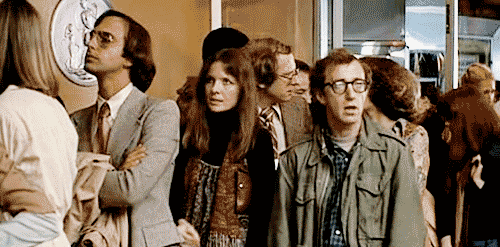
“What I wouldn’t give for a large sock of horse manure….”
© 2025 Shawn Levy Dot Com
Theme by Anders Noren — Up ↑